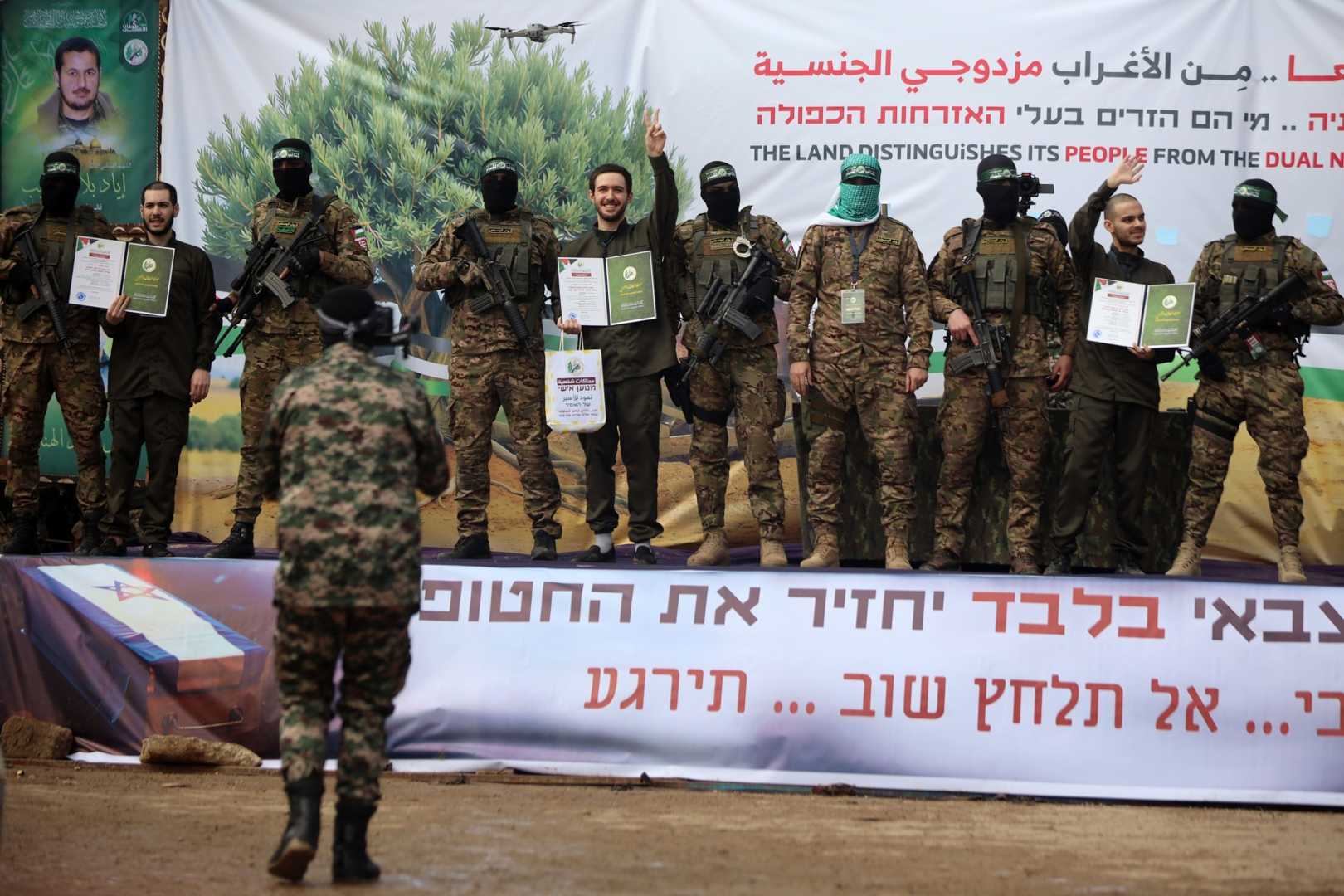World
Tensions Escalate After Israeli Hostage Release and Delayed Prisoner Swap

TEL AVIV, Israel (AP) — In a dramatic turn of events, Israeli Prime Minister Benjamin Netanyahu announced that the release of over 600 Palestinian prisoners scheduled for Saturday has been delayed following the release of six Israeli hostages by Hamas. The delay, attributed to ongoing violations by Hamas, has raised concerns about the stability of the fragile ceasefire agreement, which had provided temporary respite in hostilities.
The hostages were released in a series of tense exchanges that marked the culmination of the first phase of the ceasefire agreement. Netanyahu’s office stated late Saturday that the prisoner release would only proceed once future Israeli hostages are assured safe return without “humiliating ceremonies,” a reference to the public displays accompanying hostage handovers that have drawn criticism from various humanitarian organizations.
In their first appearance following their release, the Israeli hostages included Omer Shem Tov, Eliya Cohen, Omer Wenkert, Avera Mengistu, and Tal Shoham. The situation was emotionally charged, as families of the freed hostages embraced them at a military hospital in Petah Tikva, where they underwent medical evaluations after their harrowing ordeal.
During the events, five of the six released hostages were escorted by masked militants, who conducted staged ceremonies that elicited condemnation from observers and rights groups. “This is not how we want to see our loved ones returned,” expressed one family member, reflecting the dismay over the treatment during the handover.
As tensions mounted, reactions in Israel were mixed. While many celebrated the return of the hostages, others expressed outrage over Netanyahu’s decision to delay the prisoner release, which had been anticipated as a goodwill gesture in line with the ceasefire. Families of the Palestinian prisoners were seen dispersing in tears after the announcement, showing the emotional toll of the situation.
“We were waiting for this moment for too long, and now it has been taken from us again,” lamented Umm Ayman, a relative of one of the Palestinian prisoners awaiting release. The prisoners’ families had gathered near Ofer prison in Ramallah, anticipating joyful reunions.
The Palestinian Authority expressed frustration over the decision, calling it a violation of the ceasefire terms. “This delay is a blatant disregard for our agreement and our families,” said a spokesperson for the Palestinian negotiating team, urging for respect and communication as the situation evolves.
The six Israeli hostages were part of the last group expected to be released under the ceasefire’s initial phase, which aimed to facilitate mutually agreed prison exchanges amid long-standing hostilities that escalated on October 7, 2023, when Hamas launched a surprise attack.
Hamas has long maintained its stance that its remaining prisoners will not be released without securing a comprehensive and significant ceasefire agreement that includes significant Israeli concessions. The ongoing turmoil reflects broader instability in the region, with both sides engaging in a cyclical pattern of escalation and diplomacy as the reality on the ground remains fluid.
Despite the complexity of negotiations, both governments have indicated a desire to resume talks regarding the next phase of the ceasefire, although the ongoing tensions threaten to derail progress. As many families anxiously await further developments, the situation remains precarious as the hostage crisis continues to unfold.












